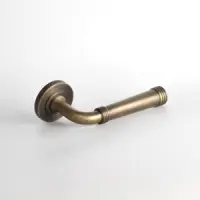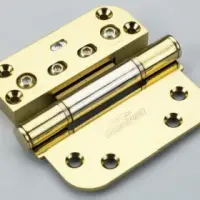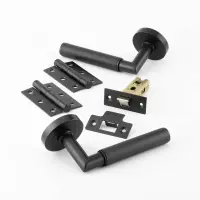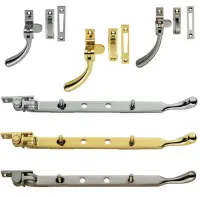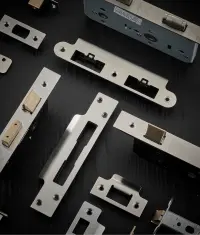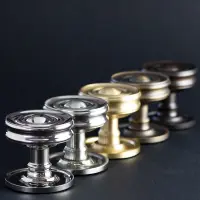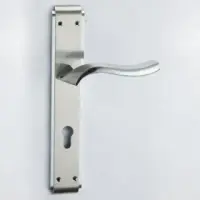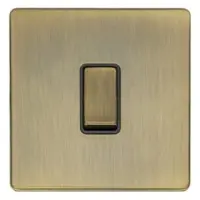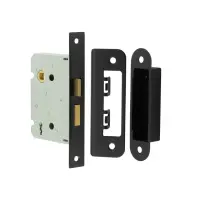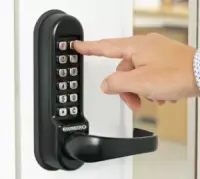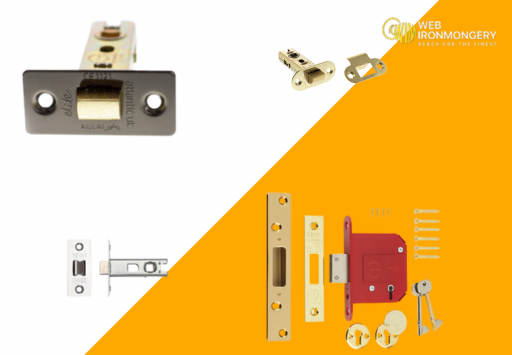Uncategorized
Buy Locks & Latches in UK
We tend to take our time choosing furniture and decorative items because they reflect our taste and personality. What we choose can affect the entire look of our home. Homeowners often select high-profile furnishings and architecture for their spaces, but these are not enough to make a place look perfect.
Why Are Locks And Latches Important?
To work seamlessly, your doors need their own set of accessories, including locks, latches, handles, knobs, hinges, etc. Otherwise, your costly entryways will start to deteriorate. These fittings may seem small, but they can impact a door’s overall appearance. Their look, feel, and functionality are very important as we tend to use them constantly.
Locks and latches also add to your home’s safety. These fittings help the door close more firmly, providing additional security and privacy. If you’re planning to purchase locks and latches in UK, here’s what you need to know:
Differences between Locks and Latches
Locks and latches are both door accessories, but they work differently and provide different levels of security.
A lock is a mechanical or electronic device that locks the door. To unlock the door, you need a key or another object, such as a keycard or your fingerprint.
A latch is a mechanical component that allows two moving parts to connect to one another. It is available as a sliding bolt that secures the door to its frame or as a hook to hold swinging or sliding doors in position. Door latches can be both manual and automatic.
The security level provided by locks and latches will depend on the type and quality of accessories you buy. Some door hardware is made from sturdy and durable materials, while others are not. This can affect the degree of security they provide for your home or property
Security
Generally, a lock is considered to be more secure than a latch. When a door is latched, it is closed but not locked, although one cannot enter through the door without first disengaging the latch. With a keyed lock, you have greater control over who can enter your property.
A lock ensures optimal security for your home or office, especially if you invest in the latest electronic devices that operate via fingerprint, RFID card, or facial recognition.
Types of Door Locks
Door locks come in a vast variety, including:
- Knob lock: the most common type of lock. It is used to secure doors inside homes. It is advisable to use this lock only for internal doors, as an intruder can easily break the lock with a hammer or wrench if fitted externally.
- Padlock: a freestanding lock that does not attach permanently to a door. Padlocks are of two types: keyed and combination. Key padlocks are mobile and effective in providing security for sheds, bicycles, lockers, and drawers.
- Deadbolt: This is very effective in preventing burglary or break-ins. Its locking mechanism works by turning a knob or key and does not use a spring. Deadbolts are very sturdy and can resist physical attacks like boring, battering, and knifing.
- Cam lock: a fastening device suitable for securing fixtures like cabinets, drawers, or mailboxes. It has a cylindrical shape and can be installed on cabinet doors using cams or tailpieces.
- Mortise lock: This is a very heavy-duty lock effective for external doors. It offers high-grade security and is a suitable choice for high-crime neighbourhoods. It is used on apartment doors, glass doors, and even commercial doors.
Types of door latches
Here are some types of latches that can provide extensive security for your home or other properties:
- Deadbolt latch: a heavyweight latch for use in homes. It features a strong locking mechanism that resists forceful attacks. These latches are effective for securing front doors.
- Roller bolt latch: This latch secures your door by means of a roller. When the roller slides into a strike plate mounted on the door frame, the door clicks shut. The latch comes with a knob or pull handle for easy use.
- Toggle latch: Also called a draw latch or spring claw latch, this latch is a handy method to close and fasten doors quickly and easily. It has a claw that clamps onto a strike plate at a particular angle. Toggle latches are used on toolboxes, transport cases, cabinets, and the safety panels of certain types of machinery. They are robust, reliable, and user-friendly, offering simple, effortless latching and unlatching.
- Tubular latch: a simple mechanical device enclosed in a metal tube. The latch is mortised into the door, allowing it to be opened and closed using a handle or knob. It is commonly used on internal doors that don’t require a lock.
Conclusion
Door hardware comes in many forms and varieties. All of them have different features and functions. They also offer different levels of security. There are many places to buy locks and latches in UK, but ensure you do your research before making a purchase.

